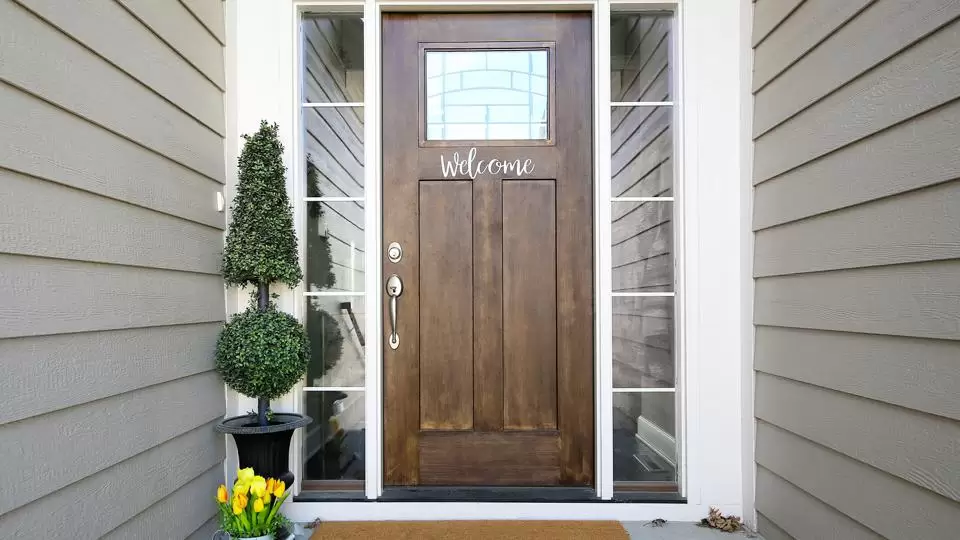Mortgage Rates Today: January 17, 2024—Rates Remain Fairly Steady
Share- Nishadil
- January 17, 2024
- 0 Comments
- 4 minutes read
- 162 Views

Mortgage Rates Today: January 17, 2024—Rates Remain Fairly Steady
The current average mortgage rate on a 30 year fixed mortgage is 7.22% with an APR of 7.12%, according to Curinos. The 15 year fixed mortgage has an average rate of 6.33% with an APR of 6.27%. On a 30 year jumbo mortgage, the average rate is 7.20% with an APR of 7.18%. Current Mortgage Rates for January […]
Reviewed By Reviewed By Published: Jan 17, 2024, 2:44am The on a 30 year fixed mortgage is 7.22% with an APR of 7.12%, according to Curinos. The 15 year fixed mortgage has an average rate of 6.33% with an APR of 6.27%. On a 30 year jumbo mortgage, the average rate is 7.20% with an APR of 7.18%. Current Mortgage Rates for January 17, 2024 30 Year Mortgage Rates Today’s —the most popular mortgage product—is 7.22%, down 0.13 percentage point from a week earlier.
The interest rate is just one fee included in your mortgage. You’ll also pay lender fees, which differ from lender to lender. Both interest rate and lender fees are captured in the annual percentage rate, or the . This week the APR on a 30 year fixed rate mortgage is 7.12%. Last week, the APR was 7.24%.
Let’s say your home loan is $100,000 and you have a 30 year, fixed rate mortgage with the current rate of 7.22%, your monthly payment will be about $680, including principal and interest (taxes and fees not included), the Forbes Advisor shows. That’s around $144,803 in total interest over the life of the loan.
15 Year Mortgage Rates Today’s (fixed rate) is 6.33%, down 0.16 percentage point from the previous week. The same time last week, the 15 year, fixed rate mortgage was at 6.49%. The APR on a 15 year fixed is 6.27%. It was 6.43% a week earlier. A 15 year, fixed rate mortgage with today’s interest rate of 6.33% will cost $862 per month in principal and interest on a $100,000 mortgage (not including taxes and insurance).
In this scenario, borrowers would pay approximately $55,161 in total interest. Jumbo Mortgage Rates On a 30 year jumbo, the average interest rate is 7.20%, the same as it was at this time last week. The average rate was 7.20% at this time last week. Borrowers with a 30 year fixed rate jumbo mortgage with today’s interest rate of 7.20% will pay $679 per month in principal and interest per $100,000.
That means that on a $750,000 loan, the monthly principal and interest payment would be around $5,090 and you’d pay roughly $1.08 million in total interest over the life of the loan. How to Calculate Mortgage Payments Mortgages and are often a necessary part of purchasing a home, but it can be difficult to understand what you’re paying for—and what you can actually afford.
Using a can help you estimate your monthly mortgage payment based on your interest rate, purchase price, down payment and other expenses. Here’s what you’ll need in order to calculate your monthly mortgage payment: What’s an APR, and Why Is It Important? The APR, or annual percentage rate, includes the mortgage interest rate and lender fees over the life of the loan.
This is an important figure because it gives borrowers a better snapshot of what they will pay for a mortgage as it shows the total cost of a mortgage if you keep it for the entire term. How Are Mortgage Rates Determined? Mortgage interest rates are determined by several factors, including some that borrowers can’t control: While the above factors set the base interest rate for new mortgages, there are several areas that borrowers can focus on to get a lower rate: What Is the Best Type of Mortgage Loan? Many home buyers are eligible for several .
Each program can have its own advantages: Frequently Asked Questions (FAQs) A competitive mortgage rate currently ranges from 6% to 8% for a 30 year fixed loan. Several factors impact mortgage rates, including the repayment term, loan type and borrower’s credit score. Comparing lenders and loan programs is an excellent start.
Borrowers should also strive for a good or excellent credit score between 670 and 850 and a debt to income ratio of 43% or less. Further, making a minimum down payment of 20% on conventional mortgages can help you automatically waive private mortgage insurance premiums, which increases your borrowing costs.
Buying discount points or lender credits can also reduce your interest rate. Most rate locks last 30 to 60 days and your lender may not charge a fee for this initial period. However, extending the rate lock period up to 90 or 120 days is possible, depending on your lender, but additional costs may apply..
Disclaimer: This article was generated in part using artificial intelligence and may contain errors or omissions. The content is provided for informational purposes only and does not constitute professional advice. We makes no representations or warranties regarding its accuracy, completeness, or reliability. Readers are advised to verify the information independently before relying on







